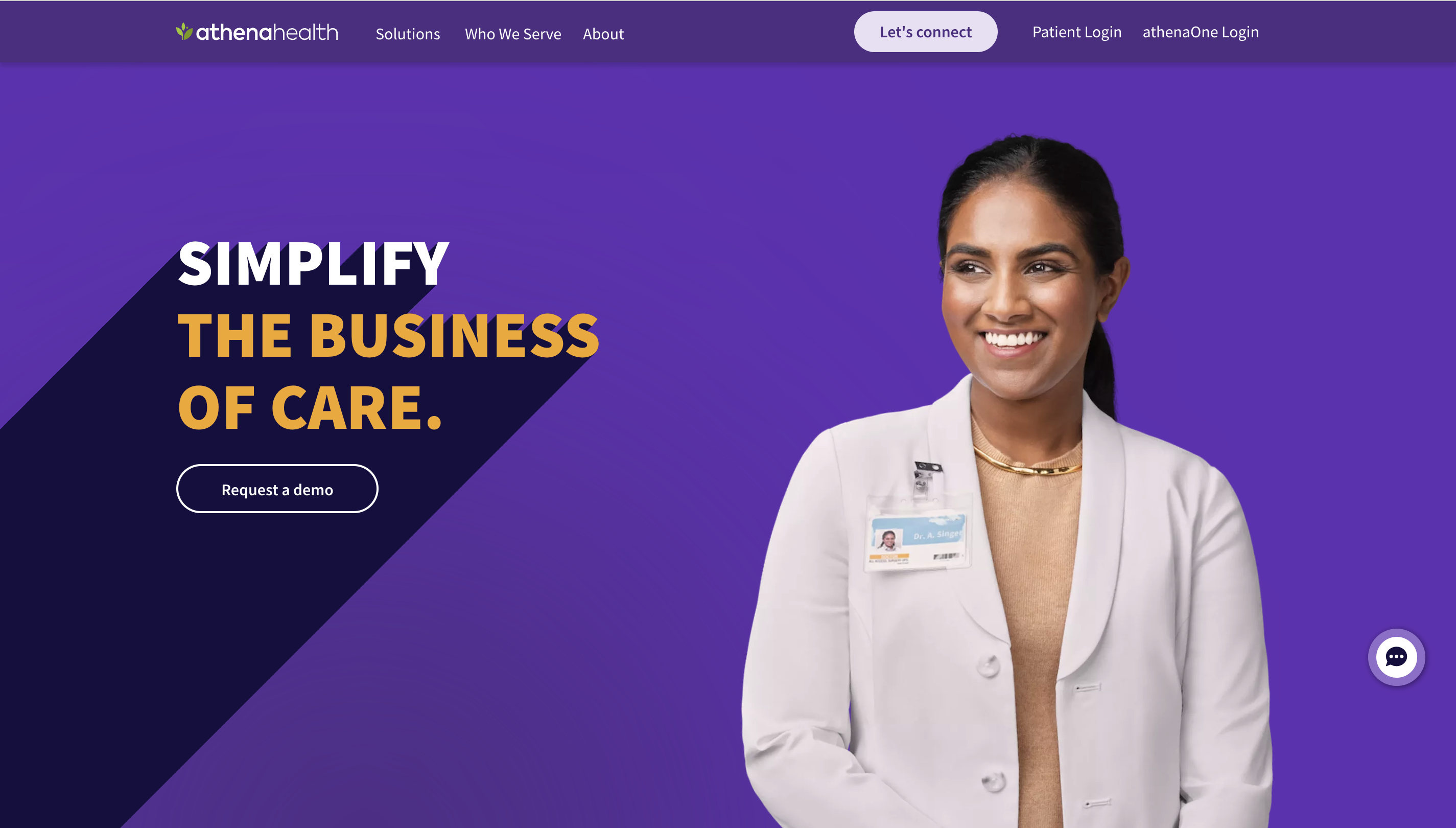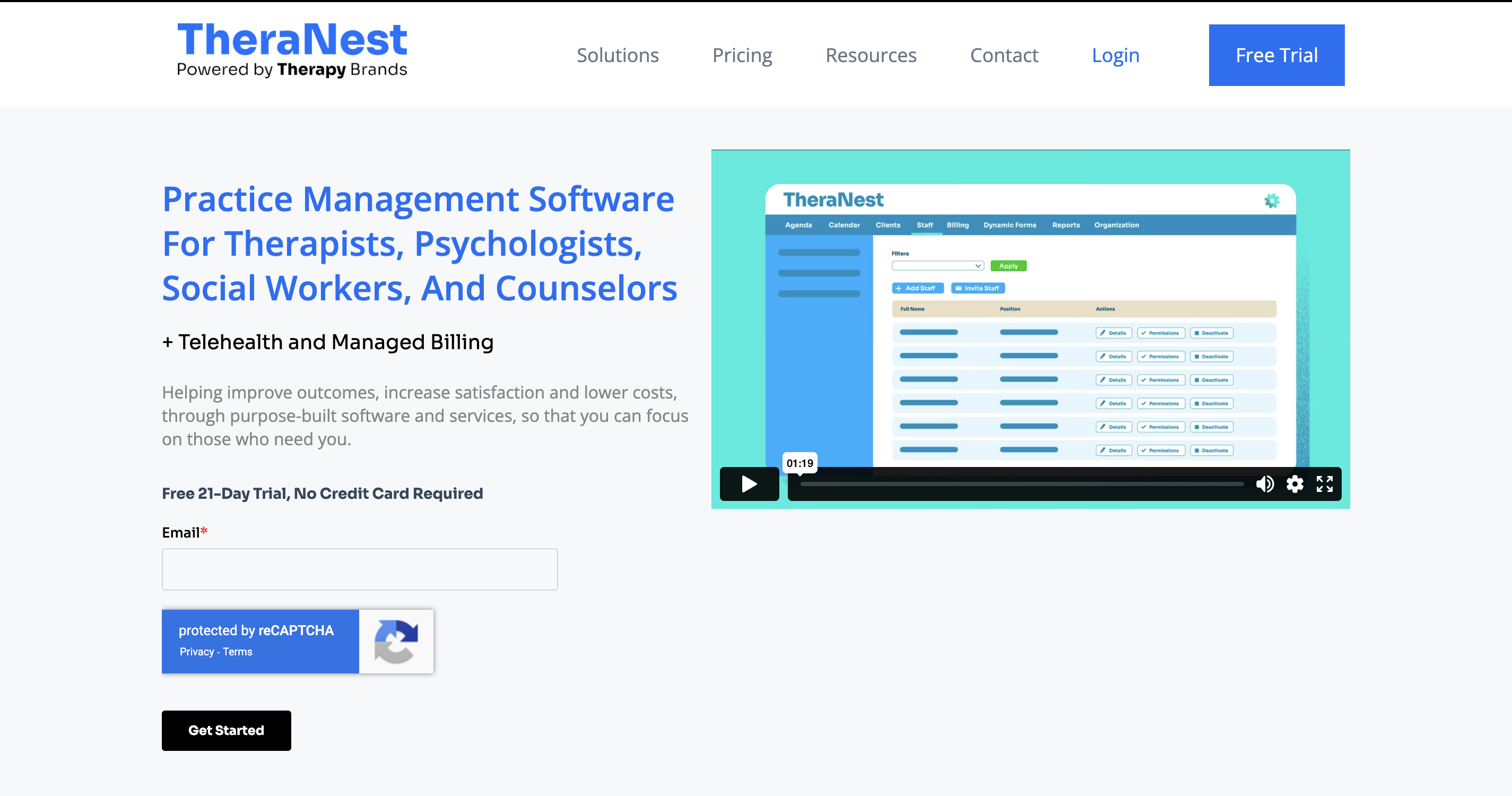With technology evolving rapidly, we now have HIPAA-compliant patient portals. These user-friendly platforms are designed to let patients access their health information, chat with their healthcare providers, and arrange their appointments conveniently.
However, given the sensitivity of medical records, the chosen patient portal must comply with the Health Insurance Portability and Accountability Act (HIPAA). This article will tackle five of the best HIPAA-compliant patient portals, exploring their features and key advantages.
Top 5 HIPAA-Compliant Patient Portal Solutions
Cerbo
When you choose Cerbo, you’re choosing one of the best HIPAA-compliant patient portal services. What sets Cerbo apart is its focus on enhancing the user experience while ensuring maximum security.
Cerbo offers an easy-to-use platform for patients to access quickly. Patients can monitor their health records, schedule appointments, communicate with their health professionals, and handle medication needs.
For health providers, Cerbo gives robust document management, customizable workflows, and a secure messaging system. Notably, all data shared is kept safe with encryption.
Key Features:
- Electronic Health Records integration
- HIPAA-compliant secure messaging
- Scheduling of appointments
- e-Prescribing and prescription refill requests
- Patient self-registration and check-in process
Athenahealth

Athenahealth is a web-based software that offers patient portals and HIPAA compliance. This portal lets patients securely message their healthcare provider, schedule appointments, and access vital health information.
Athenahealth stands out with its user-friendly layout, customizable home page, and seamless integration with EHR. User sentiments online show that efforts to protect sensitive patient information are appreciated.
Key Features:
- HIPAA-compliant secure messaging
- HIPAA-compliant medical coding service
- Regulated information collection and handling
- End-to-end encryption for telehealth
- Appointment management system
- Billing and revenue cycle management
- Customizable reporting
- Electronic ordering and e-prescribing
SimplePractice
SimplePractice offers a beautifully designed, user-friendly interface that removes the complexity of HIPAA-compliant patient portal solutions. Alongside standard patient portal functionalities, you can schedule appointments, secure messaging, and fill out patient intake forms.
However, its comprehensive built-in telehealth functionality truly sets it apart, offering seamless video conferencing within the platform.
With its features, SimplePractice allows doctors and patients to schedule appointments, handle paperwork, manage payments, and communicate in one place.
Key Features:
- Streamlined scheduling and calendar
- Integrated telehealth platform
- Outstanding billing and insurance processing
- VeriSign security seal
- HITRUST certification
- 128-bit SSL encryption
- Multi-factor authentication
- Advanced key management
- Transparent data encryption
- Audit trail and log retention
- Bank-level EHR security
Ambra Health
Ambra Health’s cutting-edge technology and strong security features make it a versatile option for various medical needs.
Ambra Health provides seamless patient access to records with user-friendly interfaces and ensures patient data remains confidential and secure. Ambra Health is also renowned as a HIPAA-compliant patient portal software, making it a top pick among healthcare providers and patients.
Key Features:
- HIPAA-compliant secure messaging
- Audit trail
- Multi-office support
- Multi-physician support
- Patient records management
- Mobile access
- EDI support
- EMR HL7 bridge
- PACS integration
- EHR-agnostic
- Telehealth capabilities
- Reporting and analytics
TheraNest

TheraNest is another choice to consider. It excels well when it comes to security, efficiency, and ease of use. TheraNest also prioritizes data protection to ensure patient confidentiality is always maintained.
TheraNest is also praised for its many capabilities, such as managing medical records, billing, and appointments. In addition, it offers a mobile app, making it an ideal choice for healthcare providers always on the move.
Key Features:
- HIPAA-compliant data handling
- e-Prescriptions
- EHR/EMR
- Encrypted secure data storage
- Role-based access control
- Detailed audit trail recording
- Secure patient-provider messaging
- Regular HIPAA compliance updates
- Privacy policy and consent management
Key Features of HIPAA-Compliant Patient Portals
Let’s explore the essential features of HIPAA-compliant patient portals and why they’re so effective:
Secure messaging
This feature allows for encrypted patient-provider communication, shielding the data from potential unauthorized access. It is critical to maintain patient confidentiality and trust while adhering to HIPAA.
Electronic Health Records (EHR) integration
EHR integration gives healthcare providers updated and synchronized access to patient health records, making it a breeze to provide timely and accurate care based on the patient’s health history.
Appointment scheduling and reminder
One of the most significant conveniences of these portals is the ease of scheduling and receiving appointment reminders. It keeps patients looped in on their healthcare schedules and reduces missed appointments.
e-Prescription refills
This feature comes in handy for managing medication refills electronically, saving time for both patients and providers and minimizing medication adherence errors or lapses.
Payment processing: With this feature, medical fees can be paid safely and conveniently online, eliminating the need for in-person transactions and speeding up the billing process.
Advantages of Implementing a HIPAA-Compliant Patient Portal
Using HIPAA-compliant patient portals enhances your healthcare services and safeguards patient data. Here’s a look at some of the key benefits:
Improved communication
These portals facilitate streamlined patient-doctor communication, enabling effective management of appointments and explicit discussions of health issues.
Data protection
With rigorous HIPAA-compliant security measures, the risk of data breaches is significantly reduced, protecting sensitive patient information.
Improved patient engagement
By providing patients with access to their health records, educational resources, and direct communication channels, these portals boost patient involvement and compliance with their treatment plans.
Efficient workflow
HIPAA-compliant patient portals also optimize the workflow of healthcare providers by automating administrative tasks like scheduling, billing, and prescription refills, freeing up time to focus on patient care.
Remote access
HIPAA-compliant patient portals often provide mobile access, allowing patients and caregivers to access important health information and communicate with healthcare providers anytime, anywhere.
The Significance of HIPAA Compliance in Healthcare Portals
HIPAA sets the rules for safeguarding sensitive patient information.
Any healthcare portal must comply with these regulations to secure patient data. A HIPAA-compliant patient portal protects institutions from legal complications and cultivates trust among patients. It reassures them that their health details remain strictly confidential.





